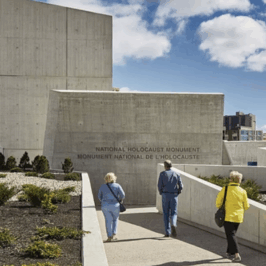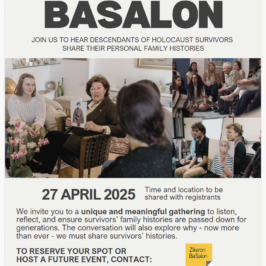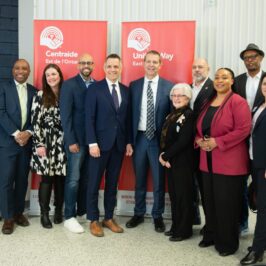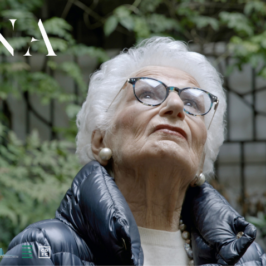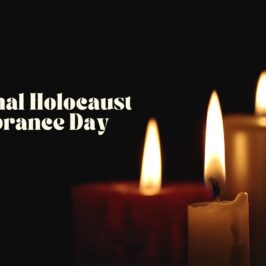By Arthur Leader
How are we, the survivors’ children, to make sense of what it means to be living as Jews in the comfort of the twenty-first century, without any possible feel or limited knowledge of what it took to exist under the circumstances of total hatred and Nazi occupation?
Let me introduce myself. My name is Arthur Leader. My parents were Polish Jews who survived the Holocaust when no one else in their large immediate families did. Their meeting and marriage were accidental. I was born in a refugee camp (called a DP [Displaced Persons] camp in those days) to two people who shared the will to survive and the need to bear witness. We came to Halifax on a ship named Marine Tiger when I was 18 months old. Our one known relative was my mother’s first cousin in Toronto. I grew up in Toronto and later trained as a fertility specialist while my brother trained as an internist. We have both practiced medicine for the past 30 years. Recently my brother and I looked over albums of family photos. Unlike my friends, there are no photos of grandparents, aunts, or uncles, or cousins. Just the four of us.
Our parents spoke freely of their experiences and left a video testimony. But beyond one set of cousins on my mother’s side, we knew very little about our family. We wondered why we waited so long to understand our family tree. Determined, I have set out to understand where I came from. Medicine was hard. Jewish genealogy is harder! It is very much akin to archeology where you must sift through fragments from multiple sources inscribed in languages that are not always easy to interpret. I was fortunate that a neighbour incidentally mentioned his son’s interest and ability in this and together we have put some branches on the tree. A distant cousin in South Africa has other branches that I am hoping to slowly fit together.
I have never written a blog, let alone one that deals with the generations after the Holocaust survivors. However, I hope this blog will help others become Jewish archeologists and illustrate what the resources online and in our communities, and what is happening of interest to the second generation across Canada. This blog will become an excellent resource for feedback and participation. Please share what would you like to read or topics you wish to discuss.
As a medical professional, my personal interest lies in understanding how hundreds of thousands of health and other professionals came to regard the torture and murder of millions of people as ethical. Several authors have touched upon the changes we are seeing even as we come to terms with past evils:
- “Humans repeat history. Race wars are back”
- “Ukrainian city honours Jews on 75th Holocaust anniversary”
What can we do to help yesterday’s and today’s victims and their children? To prevent the genocide of others?
On November 9th and 10th, 1938, waves of anti-Jewish pogroms, known as Kristallnacht, took place in Germany, Austria, and Czechoslovakia. In Ottawa as elsewhere, there will be several events leading up to our remembrance of what happened 80 years ago. Some of these are noted below. Check the CHES website for updates.
Commemorate. Educate. Inspire.
Click here to read other “Descendants of Holocaust Survivors” blogs.
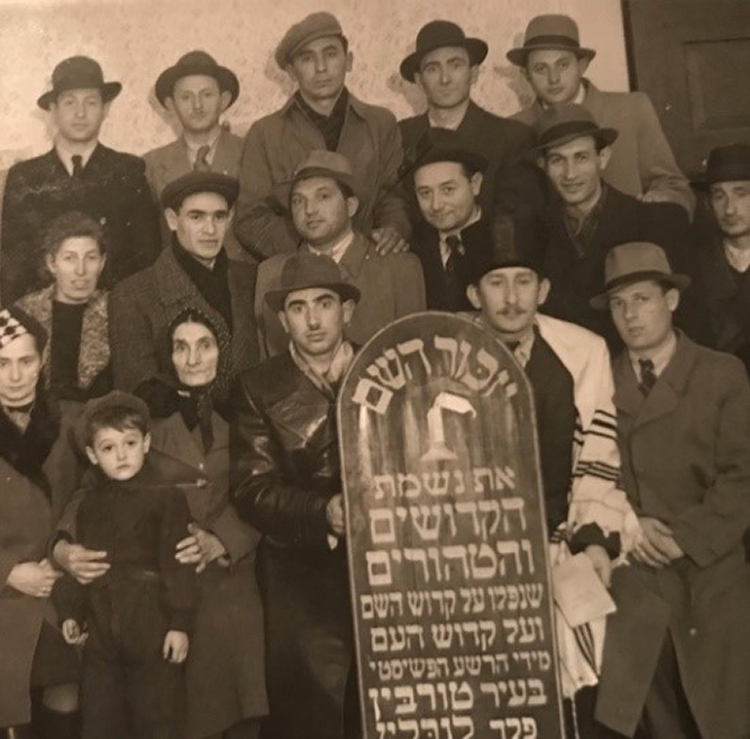
| Blog Comments |
|---|
Submitted by: Morris Neuman
Submission date: September 20, 2018
Comment: As I read your short into note, I just admit I see many things I am familiar with. I too was born in one of the many DP camps just outside Salzburg, on the German side of the border, and ultimately landed in Halifax, on our way to Montreal. My parents were also from Poland (Lodz) and met after the liberation of Bergen-Belsen at the boards put up with the names of survivors at other camps. I never had photos of family in Poland, and heard very little about them. If this blog does generate discussion, I would certainly like to be a part of it, even though I no longer have the feelings I had when I was younger in Montreal. I was just an immigrant kid with an accent, whose parents spoke little English, and whose teachers in Jewish school told me I was too young to understand when I asked how this could have happened to my parents and their families.
Submitted by: Esther Rosenberg
Submission date: September 20, 2018
Comment: Thank you Arthur for undertaking this initiative. I think it will be very helpful for descendants of Holocaust survivors, the grandchildren even more so than the children who already tend to be quite informed. I too am the child of Polish Holocaust survivors. Both my parents escaped to Russia during the war but only met in Montreal in the 1950s after emigrating to Canada. Being Jewish is already a very special part of one’s identity. Being the child of Holocaust survivors adds a whole other dimension to that experience.
Again, thanks for your efforts on this blog. I am particularly interested in finding out more about the medical ethics issues you mentioned in the post.
Submitted by: Linda Bernfeld
Submission date: September 20, 2018
Comment: Thank you for this blog. I have been on this quest to find out more about what happened to my paternal grandparents. They lived in a city called Bedzin in Poland. On this quest I accidentally found out about a third cousin of mine who is a genealogist who has a wealth of knowledge about what happened to the Jews in Poland. As well he introduced me to the JRI index which has a wealth of records of Jews in Poland.
There are many Facebook pages for second and third generation to communicate.
I am glad to share any and all this with whomever wants to.
Looking forward to meeting you all.
Submitted by: Floralove Katz
Submission date: September 21, 2018
Comment: Hello Art – Congratulations on your blog, and on your retirement from decades of brilliant professional dedication. Mazal Tov.
I have been researching the Schmelz and Gottlieb sides of my mother’s families (her mother and father), born respectively in Oświęcim (Auschwitz) Poland, and Grybow, (Poland / Austria) – most deported from Belgium, France, Poland, Austria to Ravensbruk and the extermination camps. My heart is breaking . . . over years of my painstaking research, every new document unearthed is a revelation, and a horror. One wants to find evidence, of their lives / deaths, but the unfolding of “lost personal histories” opens new waves of grief for their losses, the horrors they endured (completely unnecessarily) . . . the children. . .
I am also researching (with greater difficulty) my father’s parents’ histories (with many family members murdered in Transistria massacres / death marches along the Dniepre and Dniestre. How to cope with it all? How to prepare it in an “on-line format” to be made available to others (family members), in the hope that any one of them, or their children (eventually), might care about our collective history, our families’ individual histories, and in some way, to care enough, further to pursue the unpacking of their lost stories, and further to add to the painstaking efforts of collecting, researching, commemorating, educating. The goal of fighting antisemitism is more important than ever.
Best wishes and a very Happy New Year to you and yours.
Submitted by: Heni Nadel
Submission date: September 21, 2018
Comment: Art, thanks for starting the conversation. I’m also the child of two survivors with only one family of relatives here in Canada, one in Poland and one in Israel. I’d love to hear more about your family. How did your parents spend the war years, which camp were they in, when did they come to Canada, etc.
I know we all have stories and we need to either record them or write them down so they aren’t forgotten. A few years ago Mina organized a writing workshop for a number of us. It was very useful and maybe we should continue it or use this blog as a means to do the work.
Submitted by: Kay Bencze
Submission date: October 9, 2018
Comment: I would be very interested in finding novel ways to search for members of my family. So far Yad Vashem has been my only link and as it is based on subjective memories of others I find that the information has been conflicting at times.
It’s very hard for me to see that for some members of my family I have found no records at all, like they never existed.

